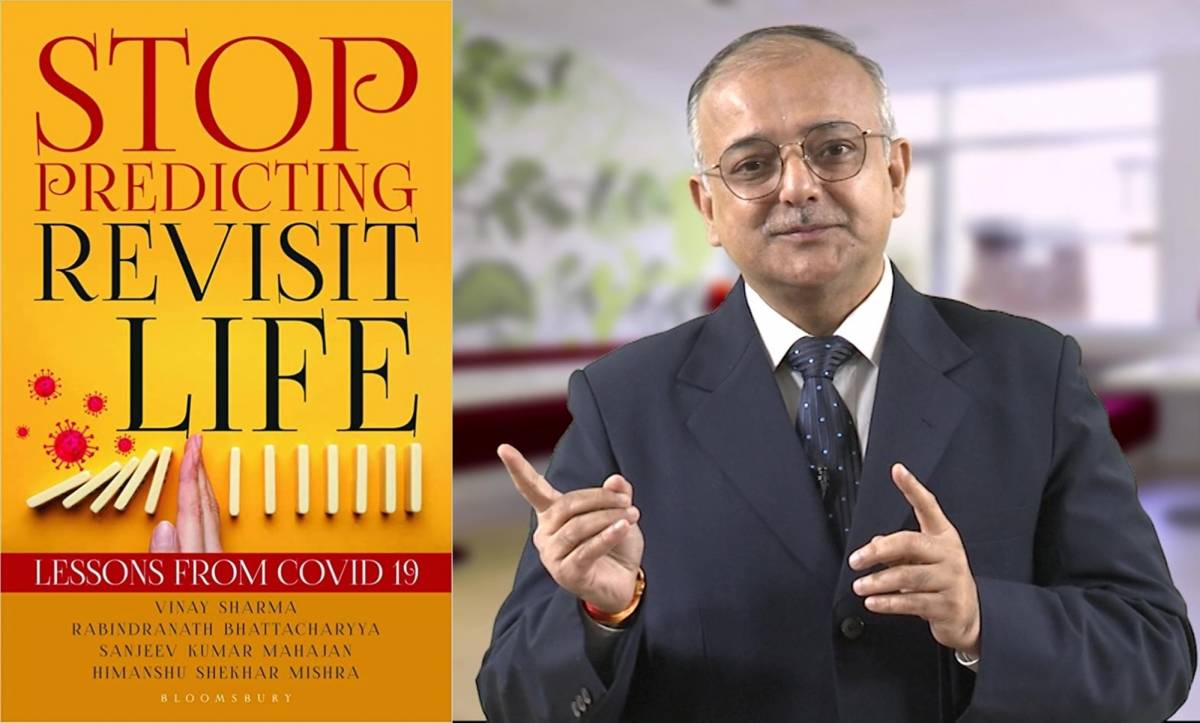The biggest lessons learned from such kinds of situations are to be cautious, to nurture, and to value life…reports Vishnu Makhijani
Human behaviour is usually oriented to two basic objectives: Comprehending a situation and then predicting the outcome while relying on that comprehension.
“Predicting life has been compelling and a linear thought. It might have been simpler when we would have been productive by adding gains and outcomes. But then, we directed all the thoughts and models towards multiplying the outcomes. The cost of this zest became high, though, we continuously tried to offset that.
“There have been indicators from all around that we must revisit life, which we ignored. Then came Covid-19, an enemy which graphed every thought process mankind possesses, all the reactions we might have and developed an algorithm of its own, It hit us hard, which compels us to think that life is the most valuable thing,” says Vinay Sharma, a Professor in the Department of Management Studies at IIT-Roorkee, the lead author of “Stop Predicting Revisit Life, Lessons from Covid-19” (Bloomsbury).
India and Indians “have fought exceptionally well and we have realized the value of life more than ever. During this war against Covid-19, we have realized the importance of being together, fighting together and caring for each other”, Sharma told in an interview.
We have realised the value of doctors, medical practitioners, all kinds of forces; people who are leading the economy; people who are contributing in the economy; skilled workers in the field of medical sciences; support teams; farmers, people contributing in transporting goods; media personnel, in fact, everyone who has contributed even a little bit in this war, he elaborated.
“More than ever, we have realized the value of leadership at all the levels and the icons who can motivate us, and make us believe that this would pass. Many people have lost their dear ones and those imprints would remain for a long time. Many had to struggle in different ways, but believing in ourselves and in each other and believing in processes related to living a happy and a healthy life is what we believe now,” Sharma maintained.
How has Covid-19 changed our philosophy of life and our understanding of the future?
“Don’t go too far, try to find contentment. Do care for others, do care for nature, care for the environment, believe in the community, believe in society, live for your country. All the fundamentals have re-strengthened themselves. This is evident as people have started choosing the methods and the ways related to the fundamentals of life and values. But we must learn to be more civic,” Sharma said.
Does India need a new comprehensive law to combat a Covid-19 like pandemic in future from the lessons learned?
“In the wake of the serious governance challenges that India faced, the Covid-19 crisis has highlighted the urgent need for a legislative framework in the form of a new national law to combat such a pandemic in future. The legislation should include a legal framework to set up a national crisis communication protocol and a new framework for health governance,” he said.
The absence of a viable national crisis communication protocol aggravated the Covid-19 crisis, especially during the first two waves and has necessitated the need for such a policy at the district, state and national levels to deal with such public health disasters in future, Sharma maintained.
“Also, the pandemic has exposed the weaknesses in the existing public health communication systems and highlighted the urgent need to restructure and reform them to meet the challenge posed by such public health disasters in future. Such a policy response would help strengthen the existing public health communication systems,” he elaborated.
What new measures are needed to augment healthcare facilities, especially in small towns and villages?
“General awareness about health and healthcare, in terms of keeping oneself healthy and to equip people for helping others in cases of situations wherein the participation of large numbers of people is required has to be the first step.
“Inter-connectivity of people with systems and systems with people in terms of provision of healthcare has to be strengthened, as have ambulatory services and a healthcare-related skilled workforce. Most of all, doctors and nursing staff have to be larger in larger numbers, not only looking at the required perspective, but also looking at the numbers that should exist for a large population,” Sharma explained.
The biggest lessons learned from such kinds of situations are to be cautious, to nurture, and to value life.
“Contentment is the key. We must remember our duties. We must remember that our objectives should primarily be to serve our nation, society, elders, and the community, while imbibing healthy living, and by being consistent throughout lives, while caring for the nature, not wasting resources, and not generating waste,” Sharma concluded.
The other co-authors of the book are Rabindranath Bhattacharyya, a Professor of Political Science at the University of Burdwan; Sanjeev Kumar Mahajan, a Professor of Public Administration at Himachal Pradesh University, Shimla; and Himanshu Shekhar Mishra, a Senior Editor with NDTV India.

Leave a Reply